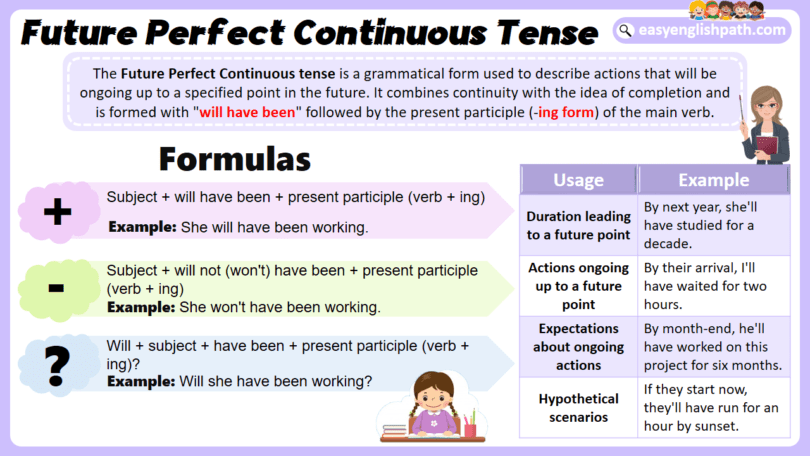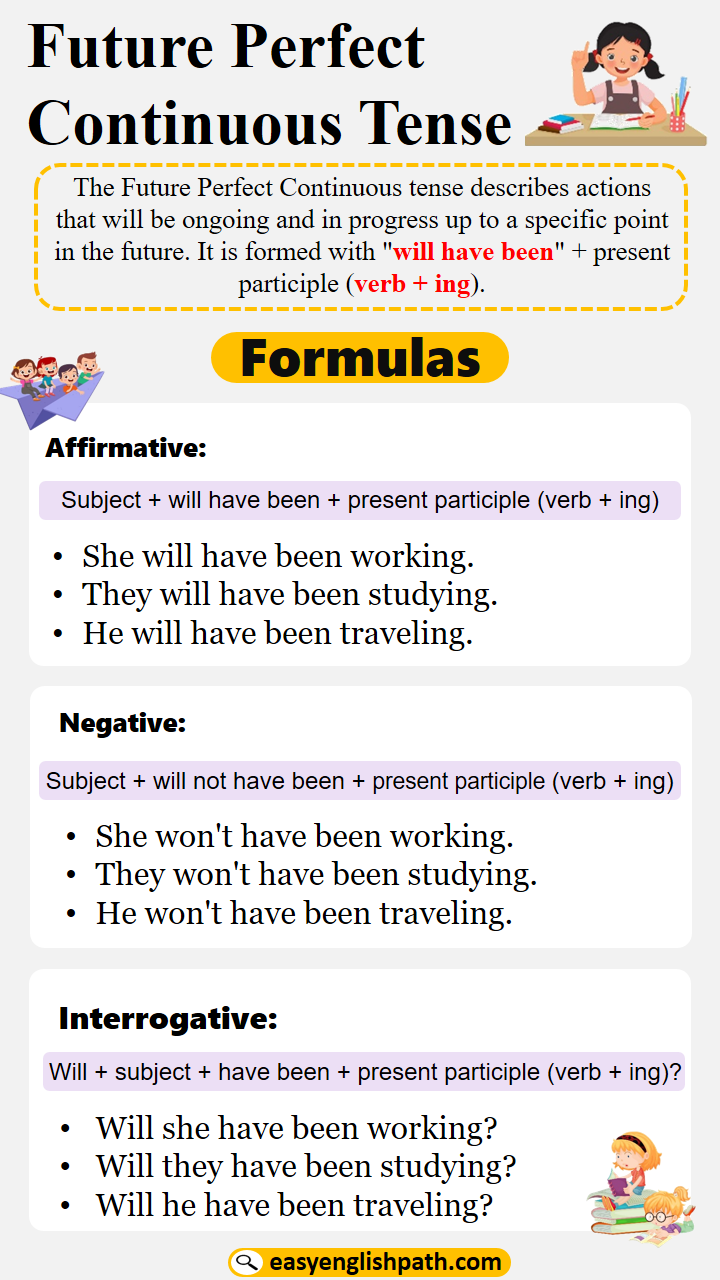The Future Perfect Continuous tense is a very simple way to talk about actions that keep happening until a specific time in the future. Its uses will have been followed by a verb with ing at the end. This tense can help us to describe how something will have been ongoing and continuous leading up to a future point in time.
Definition of Future Perfect Continuous Tense:
The Future Perfect Continuous tense, also known as the Future Perfect Progressive tense, is used to describe an action that will have been in progress for a specific duration of time at a specific point in the future.
- By 8 PM, he will have been studying for five hours.
- They will have been traveling for a week by tomorrow.
- We will have been living here for a year in June.
- I will have been running for an hour by then.
Structure:
| Subject + will have been + present participle (verb+ing) |
This structure is used to describe actions that will be ongoing up until a specific point in the future.
- They will have been playing for an hour.
- He will have been working here for ten years.
- We will have been driving for five hours.
| Subject + will not have been + present participle (verb+ ing) |
This structure is used to negate the continuous action means that would have occurred up to a point in the future.
- They will not have been running for an hour.
- He will not have been living here long.
- We will not have been eating for two hours.
| Will + subject + have been + present participle (verb+ing)? |
The above structure is used to ask questions about actions that will have been ongoing up to a certain time in the future.
- Will you have been working for five years?
- Will they have been studying all week?
- Will she have been cooking for two hours?
Uses:
1. It is used to indicate that an action will be ongoing and in progress up to a specific point in the future. it helps us to describe the duration of the action.
- By 8 PM, I will have been studying three hours.
- She will have been working a decade next year.
- They will have been traveling three days by then.
2. It can be used to express an expectation about a continuous action that will happen by a certain time in the future.
- By Friday, he will have been exercising six months.
- She will have been studying medicine for years.
- They will have been working on this project hard.
3. It helps us to understand where one action leads to another over time until a future point.
- If they invested earlier, productivity would have been increasing.
- If we left on time, we would have been avoiding this traffic jam.
5. It can be used to describe ongoing actions that would have occurred if certain conditions had been met.
- If they started earlier, they would have been finishing the project.
- If she took that job offer, she would have been earning more.
Future Perfect Continuous Tense Examples:
- By next week, I will have been working three months.
- They will have been studying five years by graduation.
- She will have been living there a decade.
- He will have been traveling six months.
- By tomorrow evening, we will have been waiting two hours.
You May Also Like this






